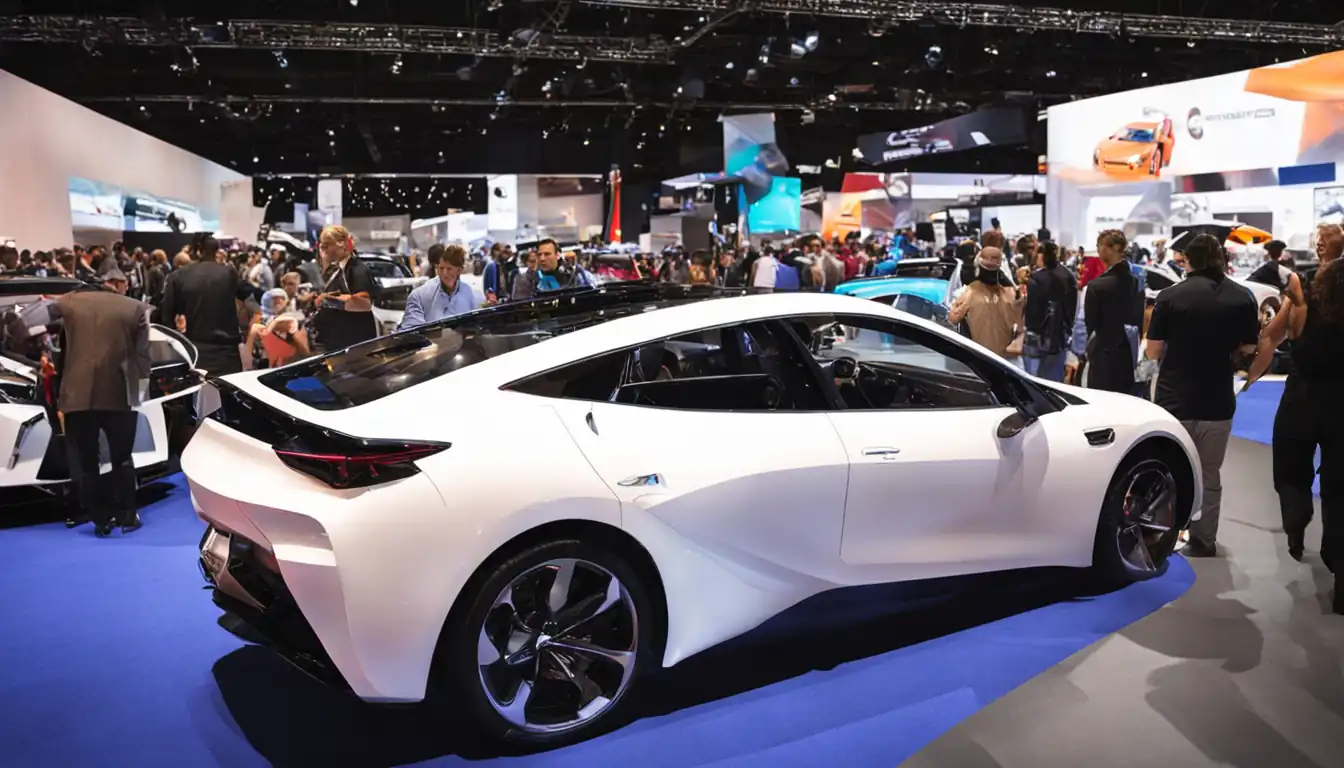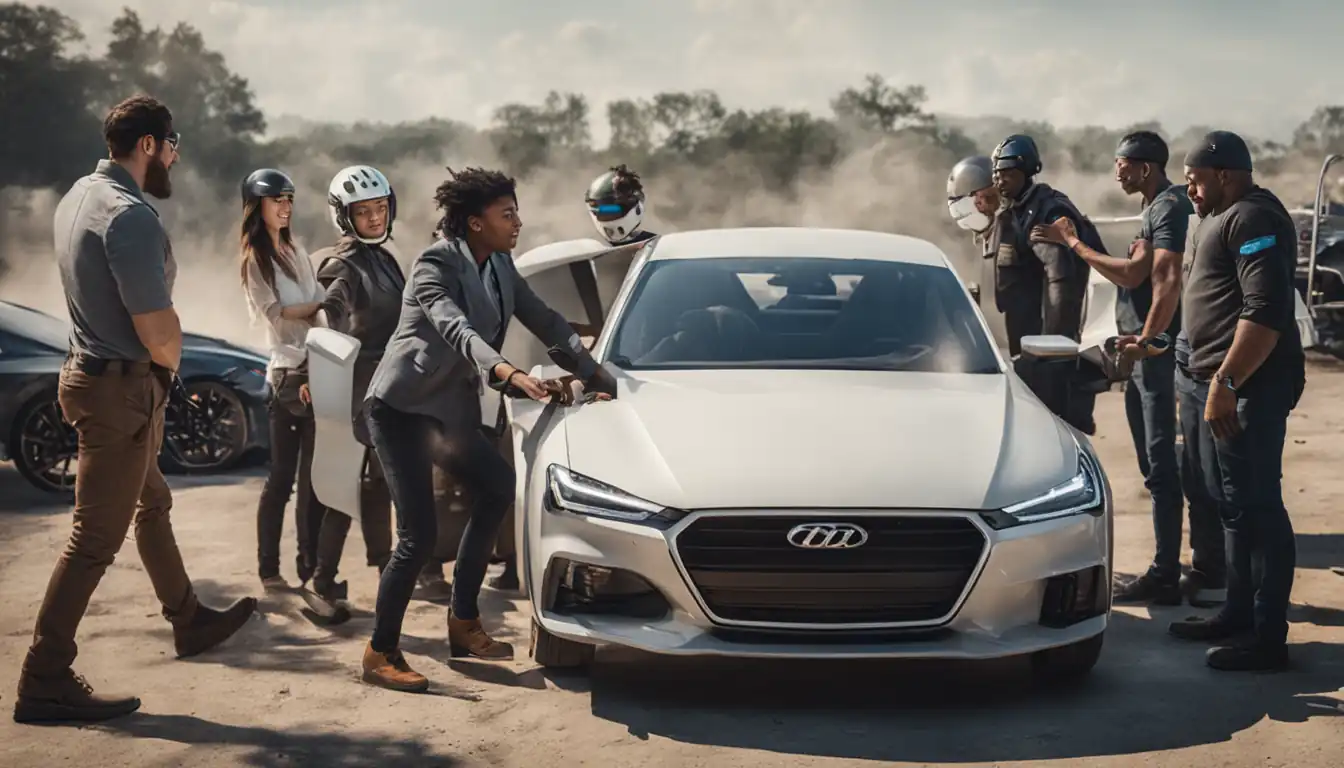Automotive Experiential Marketing Tips: Driving Success in the Automotive Industry

Introduction
Automotive experiential marketing is a powerful strategy that aims to create memorable and immersive brand experiences for consumers in the automotive industry. By engaging with consumers on a deeper level, automotive brands can build strong connections, increase brand loyalty, and drive sales. In this article, we will explore the importance of automotive experiential marketing, its benefits, and provide tips on how to implement successful campaigns.
Understanding the Automotive Consumer
To effectively implement experiential marketing strategies, it is crucial to have a deep understanding of the target audience. Analyzing the target audience involves identifying their preferences, behaviors, and motivations. By conducting market research, automotive brands can gather valuable insights that will guide their marketing decisions. This data-driven approach ensures that campaigns are tailored to resonate with the target audience, resulting in higher engagement and conversion rates.
Creating Memorable Experiences
One of the key elements of successful automotive experiential marketing is creating memorable experiences for consumers. This involves designing immersive brand experiences that go beyond traditional advertising methods. By incorporating interactive elements such as virtual reality (VR) or augmented reality (AR), automotive brands can captivate consumers and leave a lasting impression. Leveraging technology is also crucial in enhancing engagement, whether it's through interactive displays, mobile apps, or personalized experiences.
Leveraging Social Media for Experiential Marketing
 In today's digital age, social media platforms play a vital role in brand promotion. Automotive brands can leverage social media to amplify their experiential marketing efforts. By creating engaging content and encouraging user-generated content, brands can generate buzz and increase brand visibility. Engaging with followers and influencers further enhances brand reach and credibility. Collaborating with influencers and brand ambassadors who have a strong presence in the automotive industry can significantly boost brand awareness and drive consumer interest.
In today's digital age, social media platforms play a vital role in brand promotion. Automotive brands can leverage social media to amplify their experiential marketing efforts. By creating engaging content and encouraging user-generated content, brands can generate buzz and increase brand visibility. Engaging with followers and influencers further enhances brand reach and credibility. Collaborating with influencers and brand ambassadors who have a strong presence in the automotive industry can significantly boost brand awareness and drive consumer interest.
Collaborating with Influencers and Brand Ambassadors
 Identifying relevant influencers in the automotive industry is crucial for successful experiential marketing campaigns. These influencers have a strong following and can effectively promote automotive brands to their audience. Building partnerships and collaborations with influencers and brand ambassadors can help amplify brand reach and establish credibility. Leveraging influencer marketing allows automotive brands to tap into the influencer's loyal fan base, resulting in increased brand exposure and potential sales.
Identifying relevant influencers in the automotive industry is crucial for successful experiential marketing campaigns. These influencers have a strong following and can effectively promote automotive brands to their audience. Building partnerships and collaborations with influencers and brand ambassadors can help amplify brand reach and establish credibility. Leveraging influencer marketing allows automotive brands to tap into the influencer's loyal fan base, resulting in increased brand exposure and potential sales.
Hosting Automotive Events and Activations
 Hosting automotive events and activations is another effective way to engage with consumers and create memorable experiences. Planning and organizing these events require careful consideration of the target audience and their preferences. By creating unique and memorable activations, automotive brands can attract attention and generate excitement. Maximizing event exposure and return on investment (ROI) can be achieved through strategic partnerships, media coverage, and leveraging social media platforms to create buzz before, during, and after the event.
Hosting automotive events and activations is another effective way to engage with consumers and create memorable experiences. Planning and organizing these events require careful consideration of the target audience and their preferences. By creating unique and memorable activations, automotive brands can attract attention and generate excitement. Maximizing event exposure and return on investment (ROI) can be achieved through strategic partnerships, media coverage, and leveraging social media platforms to create buzz before, during, and after the event.
Measuring the Success of Experiential Marketing Campaigns
To evaluate the effectiveness of experiential marketing campaigns, it is essential to set measurable goals and objectives. These goals can include increasing brand awareness, driving website traffic, or generating leads. Tracking key performance indicators (KPIs) such as social media engagement, website analytics, and sales data provides valuable insights into campaign performance. Analyzing this data allows automotive brands to make data-driven decisions and optimize future campaigns for better results.
Case Studies: Successful Automotive Experiential Marketing Campaigns
 Examining real-life examples of successful automotive experiential marketing campaigns provides valuable insights and inspiration for implementation. By analyzing the strategies and tactics used in these campaigns, automotive brands can extract key takeaways and apply them to their own marketing efforts. Case studies showcase the power of experiential marketing in driving brand awareness, engagement, and ultimately, sales.
Examining real-life examples of successful automotive experiential marketing campaigns provides valuable insights and inspiration for implementation. By analyzing the strategies and tactics used in these campaigns, automotive brands can extract key takeaways and apply them to their own marketing efforts. Case studies showcase the power of experiential marketing in driving brand awareness, engagement, and ultimately, sales.
Overcoming Challenges in Automotive Experiential Marketing
 While automotive experiential marketing offers numerous benefits, it also comes with its own set of challenges. Budget constraints can limit the scope and scale of campaigns, requiring creative solutions to maximize impact. Navigating regulatory and legal considerations is also crucial to ensure compliance and protect the brand's reputation. Additionally, adapting to changing consumer trends and preferences is essential to stay relevant and maintain consumer interest.
While automotive experiential marketing offers numerous benefits, it also comes with its own set of challenges. Budget constraints can limit the scope and scale of campaigns, requiring creative solutions to maximize impact. Navigating regulatory and legal considerations is also crucial to ensure compliance and protect the brand's reputation. Additionally, adapting to changing consumer trends and preferences is essential to stay relevant and maintain consumer interest.
Conclusion
In conclusion, automotive experiential marketing is a powerful strategy that can drive success in the automotive industry. By creating memorable experiences, leveraging social media, collaborating with influencers, hosting events, and measuring campaign success, automotive brands can effectively engage with consumers and increase brand loyalty. Overcoming challenges and staying ahead of changing trends will ensure continued success in this dynamic industry. Implementing these tips will help automotive brands stand out and drive success in the competitive automotive market.